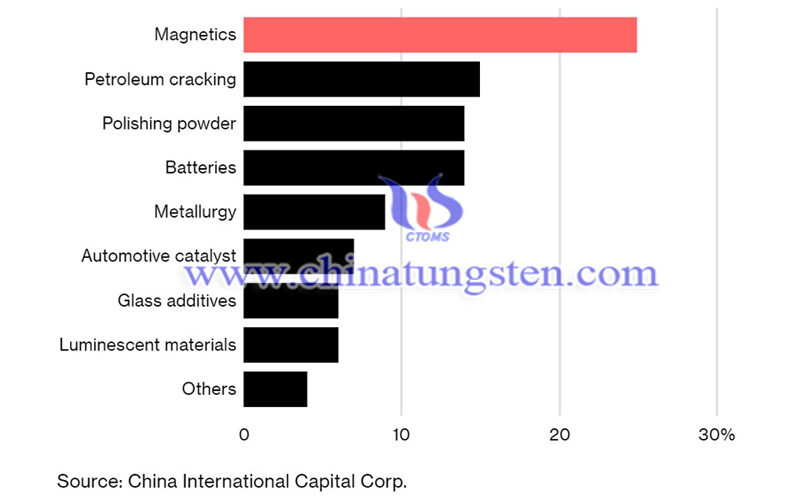Rare Earth Curbs Could Benefit Japan in Sino-US Trade War
- Details
- Category: Tungsten's News
- Published on Monday, 22 July 2019 11:57
In the Sino-US trade war, China limits rare earth exports could benefit Japan, said by a Japanese magnet manufacturer. This is because, after 2010, Japanese manufacturers have reduced the use of it and promoted the development of substitutes.
According to a report by Bloomberg News on July 17, Tokyo-based Hitachi Metals, Ltd. executive Toshiyuki Inouchi believes that after China decided to cut export quotas and reduce exports to Japan in 2010, Japanese producers were able to reduce the use of it, which stimulated the development of its substitutes.
This year, in Beijing, it was intended to restrict exports as part of the Sino-US trade war, people's attention has returned to the rare earth group of 17 elements. Permanent magnets are the largest market for rare metal elements. As the use of electric vehicles continues to expand, the demand for micro-magnets and electric motors is expected to increase substantially, and Japanese and Chinese producers hope to dig this market.
Inouchi, senior manager of the Hitachi advanced components and metals division, said Hitachi estimates that demand for magnets manufactured by Hitachi will increase by about 10% to 15% per year, driven by the growth of the automotive industry. Although it is unclear whether the Chinese government impose restrictions on the exports, Hitachi is already developing magnets without heavy rare earth and looking for sources of raw materials from outside China.

If China restricts the export to all countries, not just the United States, this will have a great impact on this heavy element subgroup. Shigekazu Suwabe, general manager of the Hitachi metal magnet materials business unit said last week that "if China does not export heavy rare earth in the next few years, the impact will spread to the world, but if the suspension (export) lasts only a few months, we do not think it will cause any problem.” He said that heavy elements will be harder to find outside of China, and light elements will be easier to obtain.
At a time when the Sino-US trade war has escalated and the agreement has been delayed, China has recently released a signal to launch a rare element card against the United States.
On the evening of May 28th, Beijing time, Xijin Hu, editor-in-chief of China’s official media “Global Times” said on Twitter, “As far as I know, China is seriously considering restricting the export to the United States. China may adopt other countermeasures in the future.”
On June 17, Beijing time, Wei Meng, spokesman of the National Development and Reform Commission of the People’s Republic of China said that, when rare minerals would become a counter-measure of Sino-US trade war, some countries ignored the rules of world trade and undermined the global industrial chain, and China firmly opposed it. If anyone tries to use the products made by China's resources and used to curb the development of suppressing China, China is also firmly opposed.
In the Sino-US trade war, the restriction on rare earth exports let Japan find more the substitutes. The revival fears could be a chance for Japanese industry to boost its sales on auto products, or Japan may be a winner from this battle.
- Tungsten Manufacturer & Supplier, Chinatungsten Online: www.chinatungsten.com
- Tungsten News & Prices of China Tungsten Industry Association: www.ctia.com.cn
- Molybdenum News & Price: news.molybdenum.com.cn
- Tel.: 86 592 5129696; Fax: 86 592 5129797; Email: sales@chinatungsten.com